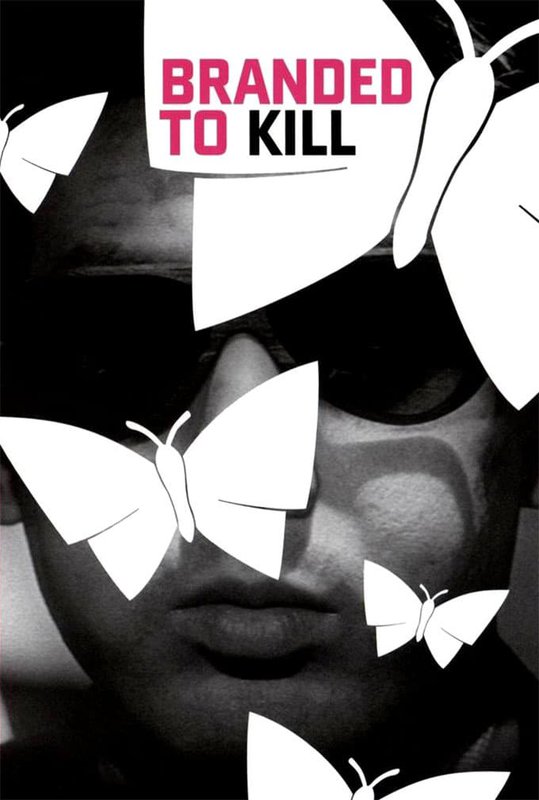Star and Shadow Cinema Presents
Branded to Kill
Seijun Suzuki – Japanese New Wave Yakuza and 1960s Surreal CoolDir: Seijun Suzuki, (1967), Japan, 90 min, Bluray, Cert: 18
-
Sun 17 March 2019 // 19:30
/ Cinema
Tickets: £7/5
When Seijun Suzuki delivered this brutal, hilarious, and visually inspired masterpiece to the executives at his studio, he was promptly fired. Branded to Kill tells the ecstatically bent story of a yakuza assassin with a fetish for sniffing steamed rice (the chipmunk-cheeked superstar Joe Shishido) who botches a job and ends up a target himself. This is Suzuki at his most extreme—the flabbergasting pinnacle of his sixties pop-art aesthetic.
"Joe Shishido, displeased with his middling success in melodramas and "blandly handsome features",[1][2] Shishido underwent cheek augmentation surgery in 1957, increasing the size of his cheekbones. His altered look has been described both as "ruggedly handsome",[1] and also as chipmunk-like.[3][4] Afterwards, he began getting bigger parts, predominantly as villains in action movies."
"Seijun Suzuki (鈴木 清順), (1923 – 2017), was a Japanese filmmaker, actor, and screenwriter. His films are known for their jarring visual style, irreverent humour, nihilistic cool and entertainment-over-logic sensibility.[1] He made 40 predominately B-movies for the Nikkatsu Company between 1956 and 1967, working most prolifically in the yakuza genre. His increasingly surreal style began to draw the ire of the studio in 1963 and culminated in his ultimate dismissal for what is now regarded as his magnum opus, Branded to Kill (1967), starring notable collaborator Joe Shishido. Suzuki successfully sued the studio for wrongful dismissal, but he was blacklisted for 10 years after that. As an independent filmmaker, he won critical acclaim and a Japanese Academy Award for his Taishō Trilogy, Zigeunerweisen (1980), Kagero-za (1981) and Yumeji (1991).
His films remained widely unknown outside Japan until a series of theatrical retrospectives beginning in the mid-1980s, home video releases of key films such as Branded to Kill and Tokyo Drifter in the late 1990s and tributes by such acclaimed filmmakers as Jim Jarmusch, Takeshi Kitano, Wong Kar-wai and Quentin Tarantino signaled his international discovery. Suzuki continued making films, albeit sporadically. In Japan, he is more commonly recognized as an actor for his numerous roles in Japanese films and television."
- Wikipedia

